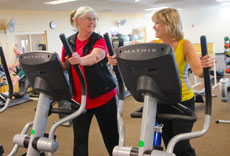We all know that exercise is good for us—but how often do we think about its long-term impact on our health and quality of life? Regular physical activity isn’t just about shedding a few pounds or building muscle; it’s a powerful tool for preventing disease, improving mental clarity, and even extending your lifespan.
As someone who has seen the benefits of consistent movement firsthand, I can confidently say: investing in your physical health through exercise pays lifelong dividends. Let’s explore why.
Why Exercise Is More Than a Fitness Goal
Exercise isn’t limited to gym sessions or fitness trends. It encompasses a wide range of activities—from walking and cycling to dancing, swimming, yoga, and strength training. What matters most is consistency and variety over time.
Health organizations like the World Health Organization (WHO) and Centers for Disease Control and Prevention (CDC) recommend at least 150 minutes of moderate aerobic activity per week, plus muscle-strengthening exercises twice a week. But the real value of regular exercise goes far beyond these numbers.
1. Improved Heart Health and Circulation
Cardiovascular disease remains a leading cause of death worldwide. Regular exercise strengthens the heart muscle, improves blood circulation, and helps regulate blood pressure. It also increases levels of HDL (good cholesterol) and reduces LDL (bad cholesterol), lowering the risk of heart attacks and strokes.
Even simple activities like brisk walking or cycling can significantly enhance your heart health if done consistently.
2. Weight Management and Metabolic Health
Exercise helps regulate body weight by increasing caloric burn and supporting a healthy metabolism. But it also plays a crucial role in preventing and managing type 2 diabetes, by improving insulin sensitivity and blood sugar regulation.
Combined with a balanced diet, physical activity helps maintain a healthy body composition—preserving lean muscle while reducing excess fat.
3. Stronger Muscles, Bones, and Joints
Resistance training and weight-bearing activities such as walking, squats, or climbing stairs stimulate bone density and muscle strength. This is especially important as we age, since we naturally lose muscle mass and bone density over time.
Regular exercise can help prevent conditions like osteoporosis and sarcopenia, which lead to weakness, frailty, and increased risk of falls or fractures later in life.
4. Boosted Immune Function
Moderate, consistent exercise has been shown to support a healthy immune system. It improves the circulation of immune cells, reduces inflammation, and may even reduce the frequency and severity of common illnesses like colds and infections.
However, it’s important to avoid excessive overtraining, which can temporarily suppress immunity—balance is key.
5. Better Sleep Quality
Struggling with sleep? Exercise can help. Physical activity promotes deeper, more restful sleep and helps regulate circadian rhythms. It also reduces the symptoms of sleep disorders like insomnia and sleep apnea.
Just be mindful of the timing—some people may find that intense workouts right before bed can be too stimulating.
6. Mental Health and Mood Enhancement
Exercise isn’t just for the body—it’s fuel for the brain. Physical activity triggers the release of endorphins, dopamine, and serotonin—neurochemicals that reduce stress and improve mood. It’s an effective, natural way to manage anxiety and depression.
Studies also suggest that exercise can enhance memory, focus, and cognitive function, helping to protect against age-related decline and conditions like Alzheimer’s disease.
7. Increased Energy and Endurance
People who exercise regularly often report having more energy throughout the day. That’s because physical activity improves your cardiovascular efficiency—your heart pumps better, your lungs work more effectively, and your muscles use oxygen more efficiently.
Over time, this translates into less fatigue, more stamina, and a higher quality of life.
8. Longevity and Disease Prevention
Perhaps the most compelling benefit of regular exercise is its ability to prolong life and reduce the risk of chronic diseases. Studies have linked consistent physical activity to a significantly lower risk of:
- Heart disease
- Stroke
- Type 2 diabetes
- Certain cancers (like colon and breast cancer)
- Depression and anxiety
- Dementia and cognitive decline
In short, exercise can add years to your life—and life to your years.
How to Start and Stick With It
You don’t need to be an athlete or join a gym to benefit from exercise. Here are a few practical tips:
- Start small: Even 10-minute walks add up.
- Find what you enjoy: Dance, swim, hike, garden—whatever gets you moving.
- Make it social: Join a class, walk with a friend, or play a team sport.
- Set goals: Track your progress and celebrate small wins.
- Listen to your body: Rest when needed, and gradually build intensity.
The key is to make movement a regular part of your lifestyle, not just a temporary fix.
Conclusion
Exercise is one of the most powerful and accessible ways to improve your long-term health. It strengthens your body, sharpens your mind, boosts your mood, and helps you live a longer, more vibrant life. Whether you’re walking around the block or lifting weights at the gym, every bit of movement counts.
Remember, you don’t have to be perfect—just consistent. Start where you are, do what you can, and keep moving forward. Your future self will thank you.






